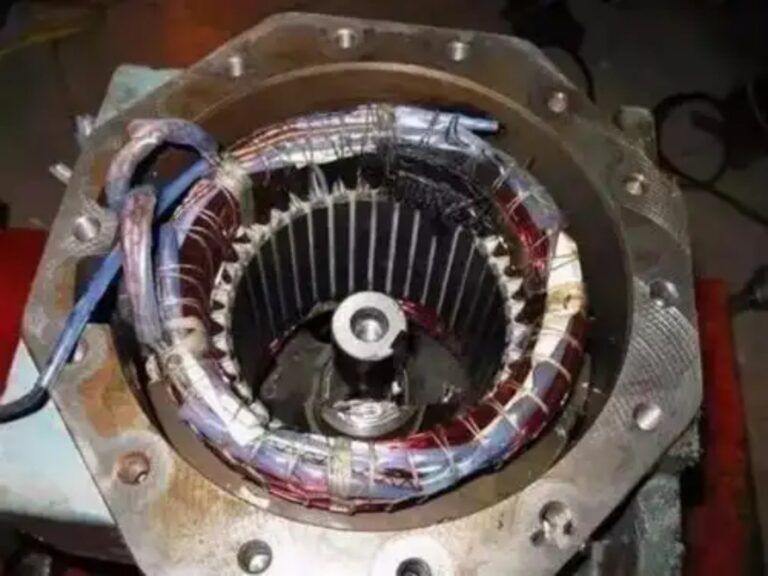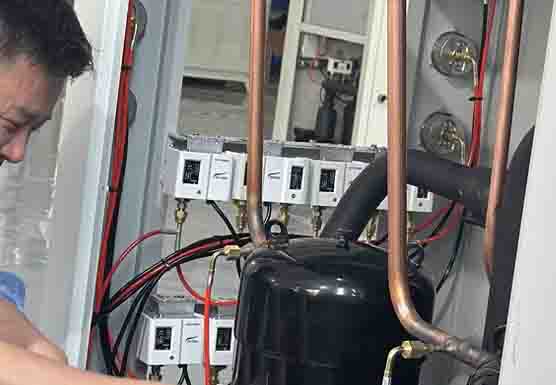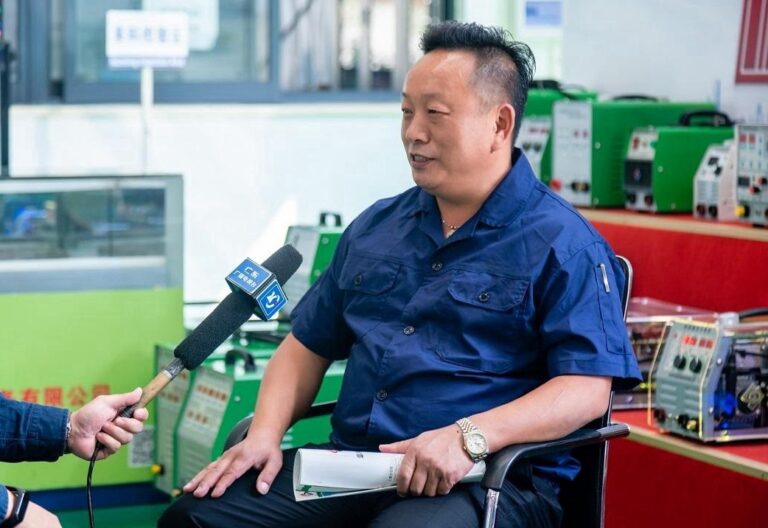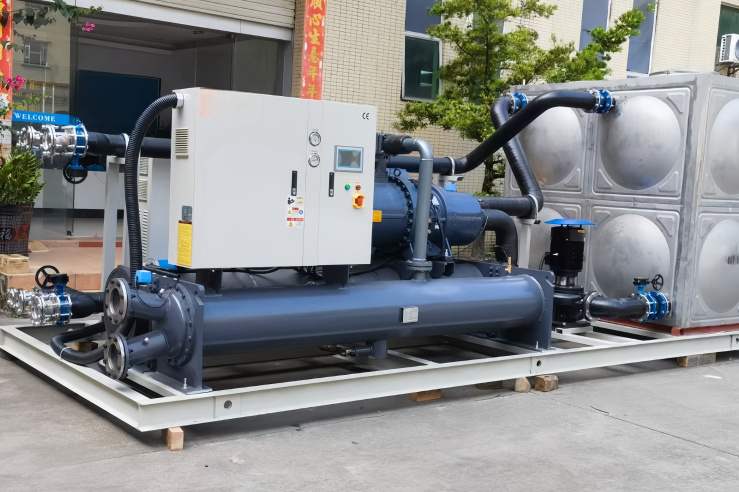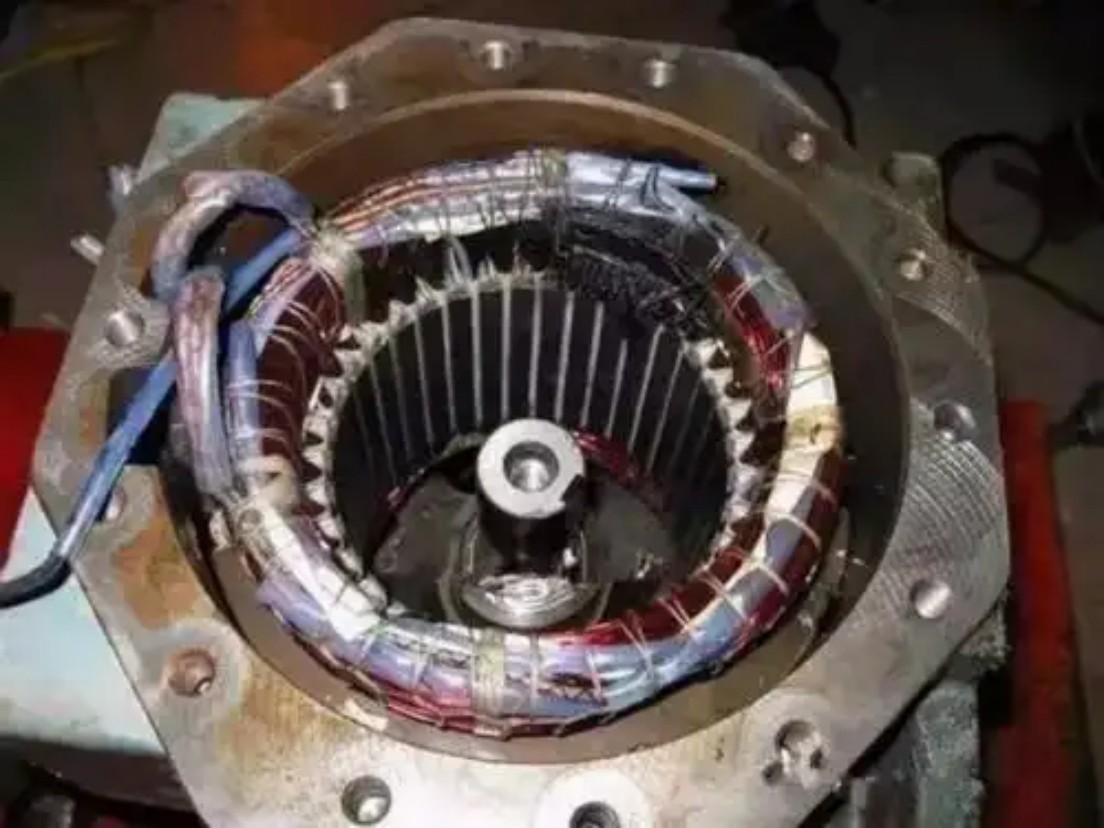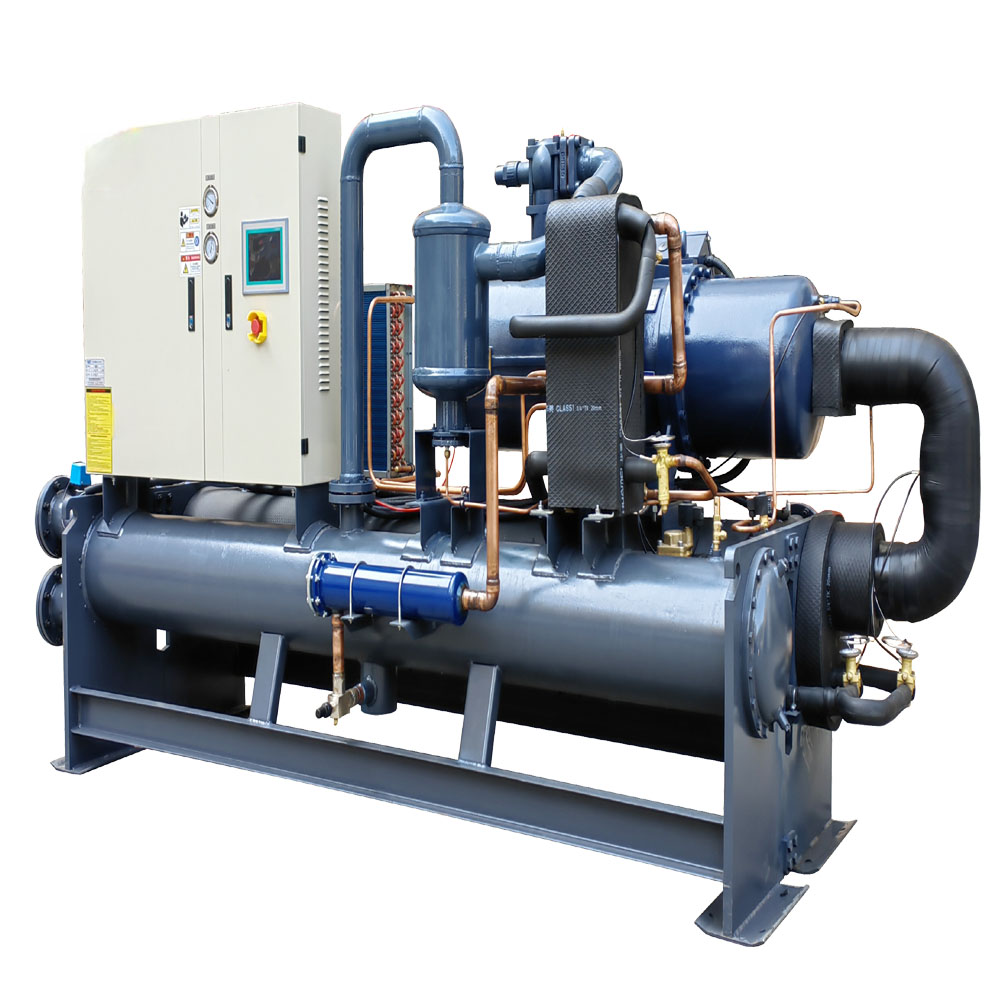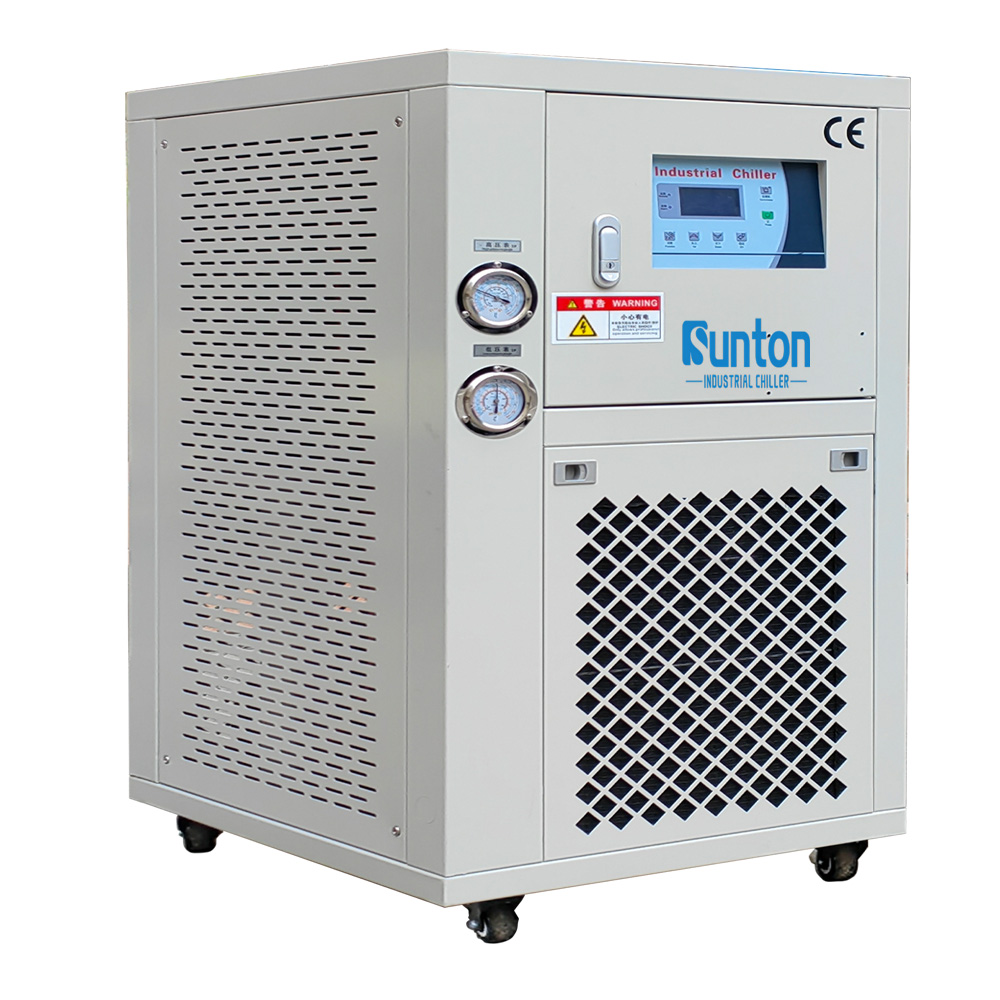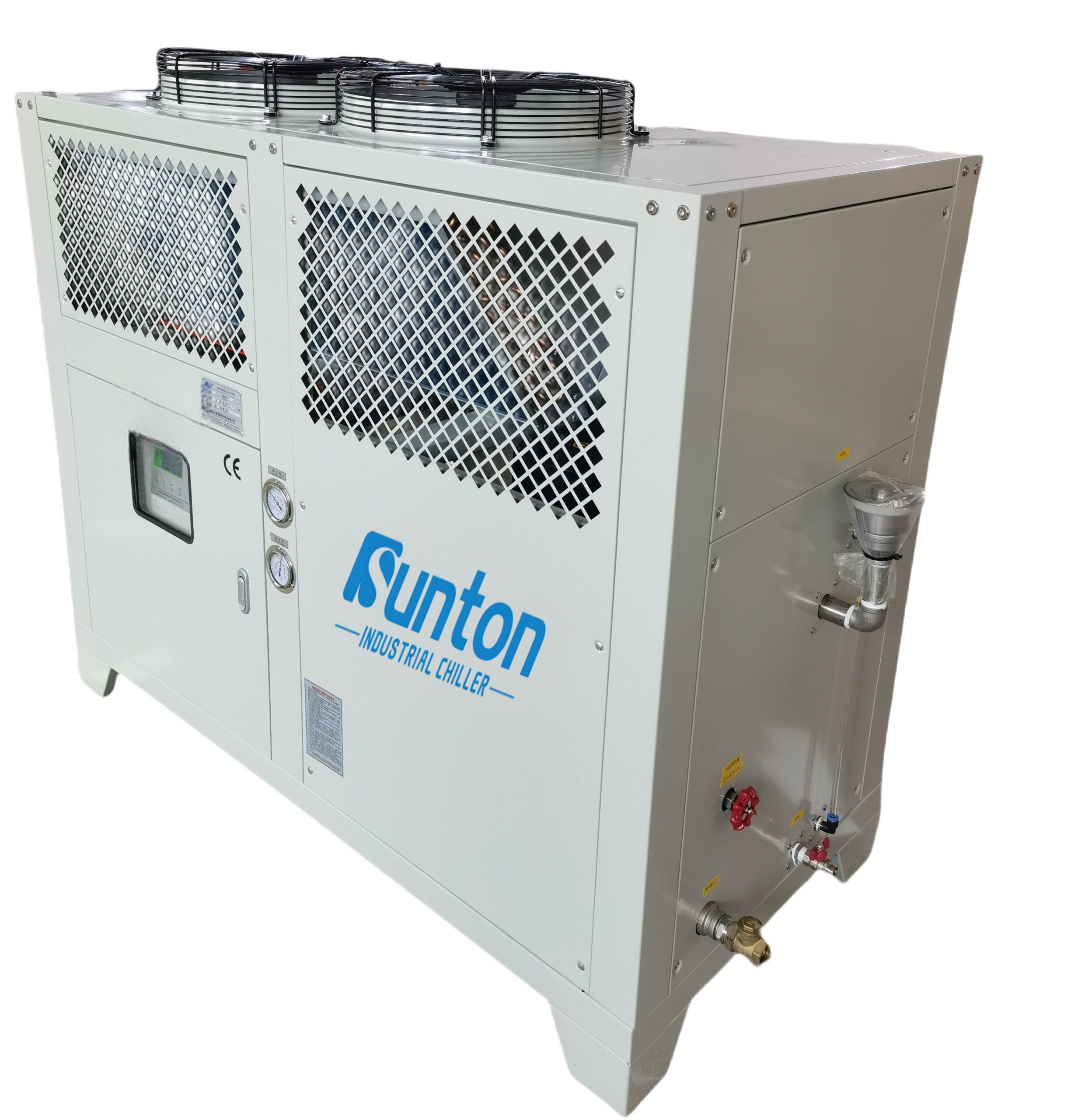-
Dalingshan Industrial Guangdong
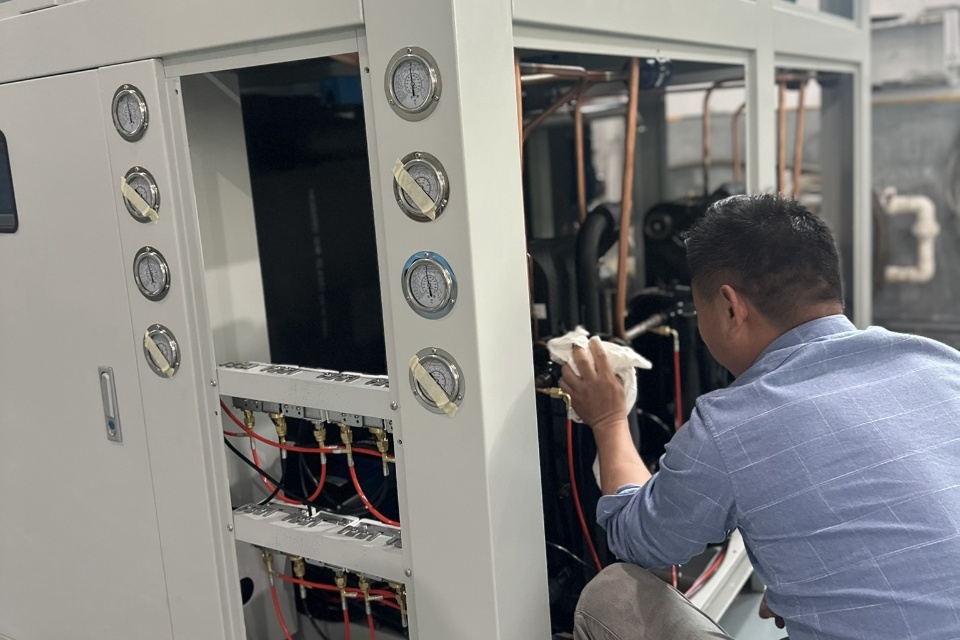
Pendingin Plastik: Panduan Utama untuk Pendinginan Proses yang Efisien
Panduan ini memberikan gambaran menyeluruh tentang Pendingin plastik sangat penting untuk mengendalikan suhu dalam berbagai proses industri. dan peran penting mereka dalam industri plastikPendingin berperan penting dalam mengelola panas dari plastik selama produksi. Kami akan membahas bagaimana pendingin ini digunakan dalam proses ekstrusi plastik. pendingin pekerjaan, berbagai jenis yang tersedia, dan faktor-faktor penting yang perlu dipertimbangkan ketika memilih pendingin terbaik untuk spesifik Anda proses plastikApakah Anda terlibat dalam cetakan injeksi, ekstrusi, atau lainnya plastik metode pemrosesan, artikel ini akan membekali Anda dengan pengetahuan untuk mengoptimalkan proses pendinginan dan meningkatkan kualitas produk.
Daftar Isi
Apa itu Pendingin Proses Plastik?
A pendingin plastik adalah unit berpendingin yang dirancang untuk mendinginkan plastik selama proses pembuatan., juga dikenal sebagai pendingin proses, adalah pendinginan sistem yang dirancang khusus untuk Dingin peralatan dan bahan yang digunakan dalam proses plastik menyukai cetakan injeksi dan ekstrusi. Ini pendingin Pendingin menyediakan suhu yang tepat dan konsisten untuk mesin cetak di industri plastik. kontrol, penting untuk menghasilkan produk berkualitas tinggi produk plastik.
Di dalam industri plastik, menjaga suhu yang tepat sangatlah penting. Pendingin plastik memastikan pendinginan yang konsisten cetakan, peralatan, dan bahan, mencegah cacat, meningkatkan kualitas produk, dan meningkatkan keseluruhan proses pembuatan plastikTanpa pendingin, yang plastik mungkin Dingin tidak merata, yang menyebabkan kelengkungan, penyusutan, dan masalah kualitas lainnya.
Bagaimana Cara Kerja Pendingin dalam Pengolahan Plastik?
Pendingin proses plastik beroperasi berdasarkan prinsip perpindahan panas, menggunakan refrigeran untuk menyerap panas dari proses plastik dan membuangnya ke tempat lain. Mari kita uraikan bagaimana hal ini pendingin untuk plastik fungsi:
- Sirkulasi Refrigeran: Sebuah spesial refrigeran cairan bersirkulasi dalam suatu lingkaran tertutup di dalam pendingin.
- Penyerapan Panas: The refrigeran menyerap panas dari proses plastik (seperti panas cetakan di dalam cetakan injeksi) melalui penukar panas. Ini mendinginkan plastik atau peralatan yang terlibat.
- Pembuangan Panas: Yang dipanaskan refrigeran kemudian melewati sebuah kondensor, di mana panas yang diserap dilepaskan, biasanya ke menara pendingin atau udara sekitar (dalam sistem berpendingin udara).
- Pendinginan dan Pengulangan: The refrigeran, sekarang sudah dingin, siap menyerap lebih banyak panas, dan siklus ini terus berlanjut. Bayangkan seperti lingkaran yang terus menerus pendinginan.
Memahami proses ini membantu operator memahami peran penting setiap komponen, seperti kompresor, kondensordan penguap, dalam mempertahankan pendinginan yang andal dan optimal kontrol suhu.
Jenis Pendingin Plastik: Mana yang Tepat untuk Kebutuhan Anda?
Berbagai jenis pendingin plastik memenuhi berbagai kebutuhan dan aplikasi dalam industri plastikMemilih yang benar jenis pendingin sangat penting untuk mengoptimalkan proses Anda.
- Pendingin Berpendingin Udara: Ini pendingin menggunakan udara untuk Dingin itu refrigeran di dalam kondensorRelatif mudah dipasang dan dirawat, tetapi kurang efisien di lingkungan panas. Pendingin Sekrup Berpendingin Udara kuat dan andal untuk kebutuhan pendinginan skala sedang hingga besar.
- Pendingin Berpendingin Air: Ini pendingin menggunakan air untuk Dingin itu refrigeran, menawarkan lebih tinggi efisiensi energi, terutama di daerah beriklim hangat. Namun, mereka memerlukan sistem air, termasuk menara pendingin atau sumber air lainnya. Untuk efisiensi dan konservasi air yang optimal, pertimbangkan Pendingin Air Sekrup Berpendingin Air.
- Pendingin Portabel: Unit-unit kompak ini menawarkan fleksibilitas dan dapat dengan mudah dipindahkan di antara mesin atau proses yang berbeda. Unit-unit ini ideal untuk operasi yang lebih kecil atau untuk melengkapi operasi yang sudah ada. kapasitas pendinginan. Pendingin portabel merupakan pilihan praktis untuk berbagai aplikasi pendinginan.
Memilih antara berpendingin udara dan berpendingin air model sangat bergantung pada sumber daya yang tersedia, iklim lokal, dan biaya operasional jangka panjang. Sementara unit berpendingin udara mungkin tampak lebih sederhana di awal, sistem berpendingin air sering kali menawarkan keuntungan jangka panjang yang signifikan. penghematan biaya melalui lebih besar efisiensi energi, terutama di daerah yang lebih hangat. Hal ini membuat berpendingin air pendingin lebih banyak ekonomis pilihan dalam jangka panjang. Untuk persyaratan suhu rendah khusus, jelajahi Solusi Pendinginan Chiller Suhu Rendah.
Memilih Pendingin Plastik yang Tepat: Faktor Utama yang Perlu Dipertimbangkan
Memilih pendingin plastik kanan melibatkan beberapa faktor yang dapat berdampak signifikan pada Anda produksi plastik proses:
- Kapasitas Pendinginan: The pendingin harus memiliki cukup kapasitas pendinginan untuk memenuhi tuntutan aplikasi spesifik Anda. Hitung beban panas yang dihasilkan oleh proses Anda untuk memastikan daya pendinginan yang memadai.
- Kontrol Suhu: Tepat kontrol suhu sangat penting dalam pengolahan plastikMencari pendingin dengan tingkat lanjut pengontrol suhu dan toleransi suhu yang ketat.
- Efisiensi Energi: Efisiensi energi merupakan pertimbangan utama untuk mengurangi biaya operasional. Carilah pendingin dengan EER (Rasio Efisiensi Energi) yang tinggi dan pertimbangkan fitur-fitur seperti kompresor kecepatan variabel untuk mengoptimalkan konsumsi energi.
- Persyaratan Perawatan: Pilih chiller dengan akses mudah ke komponen untuk perawatan, sehingga meminimalkan waktu henti.
Aplikasi Pendingin Plastik dalam Berbagai Proses
Pendingin plastik sangat penting untuk berbagai proses dalam industri pengolahan plastik.
- Cetakan Injeksi: Pendingin memainkan peran penting dalam proses cetak injeksi dengan mendinginkan cetakan, memungkinkan waktu siklus yang lebih cepat dan kualitas komponen yang lebih baik. Ini kontrol suhu yang tepat sangat penting untuk menghasilkan produk berkualitas tinggi secara konsisten Bagian plastik.
- Ekstrusi: Dalam ekstrusi, pendingin mempertahankan suhu laras ekstruder dan cetakan, memastikan aliran material yang konsisten dan mencegah cacat.
- Cetakan Tiup: Pendingin mendinginkan cetakan dalam blow molding, krusial untuk mencapai bentuk komponen yang diinginkan dan mencegah terjadinya lengkungan.
- Pembentukan termal: Pendingin dengan cepat Dingin yang terbentuk plastik lembaran dalam thermoforming, memastikan stabilitas dimensi dan mencegah distorsi.
Memahami aplikasi spesifik ini akan memandu Anda dalam memilih solusi pendingin terbaik untuk kebutuhan khusus Anda. Memilih pendingin untuk mendinginkan peralatan atau aplikasi spesifik Anda akan mengharuskan Anda untuk mengevaluasi beban panas yang dihasilkan selama proses cetak injeksi, atau yang lainnya cetakan plastik metode. Mempertimbangkan beban panas ini akan memastikan Anda memperoleh pendingin dengan cukup kapasitas pendinginan untuk mempertahankan yang diperlukan suhu dan tekanan dibutuhkan untuk manufaktur yang efisien dan produktif.
Memelihara Pendingin Plastik Anda agar Berkinerja Optimal
Perawatan rutin sangat penting untuk memaksimalkan umur pakai dan efisiensi keseluruhan dari Anda pendingin plastik.
- Pembersihan: Bersihkan kumparan kondensor dan evaporator secara teratur untuk menghilangkan debu dan kotoran, yang dapat menghambat perpindahan panas dan mengurangi efisiensi.
- Pemeriksaan Refrigeran: Memantau refrigeran tingkat dan mengatasi kebocoran dengan segera untuk memastikan kinerja pendinginan yang optimal.
- Perawatan Pompa: Periksa dan rawat secara teratur pompa untuk memastikan ketepatan aliran air atau aliran refrigeran melalui sistem.
- Pemeriksaan Sistem Kontrol: Periksa unit kontrol secara berkala untuk memastikan pengoperasian yang benar dan pastikan kontrol suhu yang tepat.
- Pengolahan Air: Pendingin digunakan untuk mempertahankan suhu air yang optimal dalam berbagai aplikasi. Jika Anda menggunakan pendingin air, menerapkan air program perawatan sangat penting untuk mencegah terjadinya kerak dan korosi pada sistem air. Dirawat dengan baik air sistem memastikan efisiensi pendinginan dan memperpanjang umur Anda pendingin. Reguler air pengujian dan perawatan kualitas dapat mencegah penumpukan dan pengelupasan mineral, yang dapat menghambat aliran air dan mengurangi pendingin's pendinginan efisiensi.
Dengan mengikuti praktik pemeliharaan ini, Anda dapat memastikan pendingin Anda terus memberikan pendinginan yang andal, memaksimalkan masa pakainya dan berkontribusi pada kualitas produk yang konsisten. Perawatan yang tepat juga berkontribusi pada efisiensi energi dan mengurangi biaya operasional Anda. Pertimbangkan untuk mengeksplorasi opsi seperti Pendingin Sentral Sekrup Berpendingin Air untuk kebutuhan pendinginan skala besar.
FAQ Tentang Pendingin Plastik
Apa cara terbaik untuk menentukan kapasitas pendinginan yang saya perlukan untuk proses saya?
Kapasitas pendinginan yang dibutuhkan bergantung pada faktor-faktor seperti ukuran dan jenis mesin pemrosesan, jenis plastik yang diproses, dan waktu siklus yang diinginkan. Konsultasikan dengan ahli pendingin untuk menghitung kebutuhan pendinginan spesifik Anda secara akurat.
Apa saja jenis sistem pendingin yang tersedia untuk pendingin plastik?
Jenis utamanya adalah pendingin udara dan pendingin air. Pendingin udara menggunakan udara untuk menghilangkan panas, sedangkan pendingin air menggunakan air. Pilihannya bergantung pada faktor-faktor seperti suhu sekitar, ketersediaan air, dan pertimbangan biaya.
Bagaimana cara kerja pengontrol suhu dalam pendingin plastik?
Pengontrol suhu bertindak sebagai otak pendingin, memantau air dingin (atau proses air) suhu dan menyesuaikan operasi pendingin untuk mempertahankan titik yang ditetapkan. Ini memastikan ketepatan dan konsistensi suhu air untuk pendinginan proses yang optimal.
Apa keuntungan menggunakan pendingin plastik portabel?
Pendingin portabel menawarkan fleksibilitas, sehingga Anda dapat memindahkannya dengan mudah di antara berbagai mesin atau proses. Pendingin portabel ideal untuk operasi yang lebih kecil atau untuk melengkapi sistem pendingin yang sudah ada.
Poin Penting: Mengoptimalkan Pemrosesan Plastik Anda dengan Pendingin yang Tepat
- Pendingin plastik sangat penting untuk konsistensi dan efisiensi pendinginan di dalam industri manufaktur plastik.
- Memilih jenis pendingin yang tepat (berpendingin udara atau berpendingin air) dan ukuran (kapasitas pendinginan) sangat penting untuk kinerja optimal.
- Perawatan rutin sangat penting untuk memaksimalkan umur pakai dan efisiensi pendingin.
- Proses plastik yang berbeda (cetak injeksi, ekstrusi, cetak tiup, thermoforming) memiliki persyaratan pendinginan yang spesifik.
- Bermitra dengan produsen pendingin yang memiliki reputasi baik dapat memberikan panduan dan dukungan ahli.
Dengan mengikuti wawasan dan saran yang diberikan dalam panduan ini, Anda dapat mengelola proses pendinginan secara efektif, menghasilkan produk plastik berkualitas lebih tinggi, meningkatkan efisiensi operasional, dan meningkatkan profitabilitas. Hubungi kami hari ini untuk mendiskusikan spesifik Anda aplikasi pendinginan dan jelajahi berbagai macam produk kami solusi pendinginKami juga menawarkan Pendingin glikol untuk kebutuhan pendinginan khusus.

